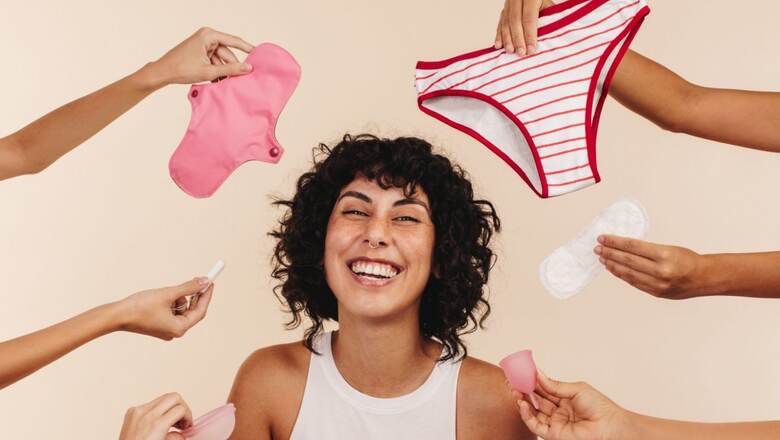
views
Menstruation is a natural and necessary occurrence. Although it can be perceived as an inconvenience, it is essential to prioritize menstrual hygiene for overall health and well-being. Menstrual hygiene encompasses more than just changing pads or products. It is vital to adopt proper practices to ensure a clean and comfortable period while preventing infections and other complications. By taking care of menstrual hygiene, individuals can promote their overall well-being during this natural process.
“The best way to manage your menstrual cycle is by talking about it openly. I’ve noticed many women in my life who ignore symptoms related to their periods, and it causes them a lot of problems. Some women experience severe pain but feel shy or embarrassed to seek help. Others have irregular periods but think it’s normal and don’t take it seriously. But the truth is, avoiding these discussions only makes the problems worse. Your menstrual cycle can tell you a lot about your health. Missing periods could mean you have a condition called PCOS, and intense pain might be a sign of endometriosis or something else that needs attention,” says Tanvi Johri, Co- founder and CEO, Carmesi.
That’s why it’s so important to talk about periods and take care of menstrual hygiene. It can help solve many problems for women in the long run.
Pallavi Utagi, CEO and Founder, SuperBottoms, shares some ultimate menstrual hygiene tips and guidelines that will help you navigate your menstrual cycle with confidence and care, ensuring a healthy and stress-free experience
- 1. Choose the Right Menstrual Product for You
With so many options available, finding the right menstrual product for your needs is essential. Whether it’s pads, tampons, menstrual cups, or period underwear, do some research and ask for recommendations from friends. Avoid sanitary napkins as they contain chemicals, can cause period rashes, and are harmful to the environment. Opt for products like cloth pad or period underwear that prioritize your comfort, health, and the planet.
- Embrace Sustainable and Comfortable Alternatives
Say goodbye to traditional pads and tampons and consider trying period underwear and cloth pads. These innovative alternatives are not only sustainable but also stretchy, soft, breathable, and rash-free, providing utmost comfort during your period. They are made from high-quality fabrics that are gentle on your skin, and they are reusable, reducing waste and environmental impact.
- Change Your Menstrual Product Regularly
To avoid leaks, odors, and infections, it’s crucial to change your menstrual product regularly. Experts and gynecologists recommend changing pads every 4-6 hours, while tampons and menstrual cups can be changed every 6-8 hours. With reusable options like period underwear and cloth pads, follow the manufacturer’s instructions for cleaning and changing them to maintain hygiene.
- Prioritize Personal Hygiene
During your period, maintaining good intimate hygiene is vital. Wash your hands regularly, take showers, and change your underwear and clothes frequently. Steer clear of scented products, as they can disrupt the natural balance of your vagina and lead to infections. If you have any concerns or experience unusual symptoms, consult a healthcare provider for guidance and support.
- Stay Hydrated
Staying hydrated is crucial for maintaining good health, especially during your period. Your body loses fluids, which can lead to dehydration if not replenished. Drink plenty of water, preferably lukewarm, to ease cramps and reduce bloating. Aim for at least 8 glasses of water a day and limit your intake of caffeine and alcohol, as they can contribute to dehydration.
- Keep It Simple: Avoid Soap and Vaginal Hygiene Products
Maintaining a healthy pH balance is essential for vaginal health. Avoid using soap or vaginal hygiene products in the genital area, as they can disrupt the natural balance and cause irritation, inflammation, and infections. Instead, use plain water to clean the area and opt for cotton underwear that allows your skin to breathe. If you notice any unusual symptoms or odors, seek evaluation and treatment from a healthcare provider.
Remember, menstrual hygiene is about taking care of your body, being comfortable, but also helping to reduce environmental impact. Embrace sustainable alternatives like period underwear and cloth pads, unburdened by harmful chemicals, these alternatives will help restore harmony to our bodies and the environment we call home.



















Comments
0 comment